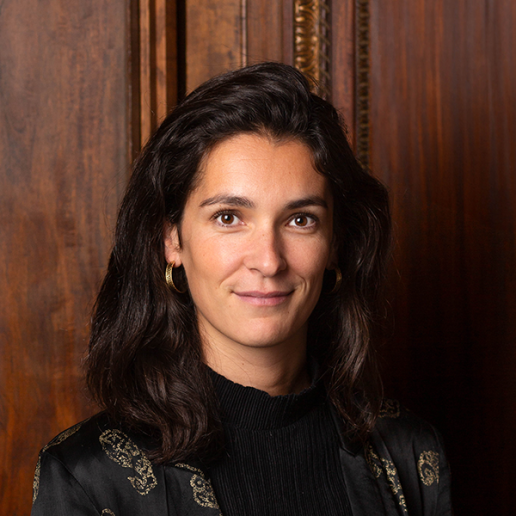Placement: NYU Langone Health
Mentor: Devin Mann, M.D., Professor, Department of Population Health and Department of Medicine, NYU Grossman School of Medicine; Senior, Director of Informatics Innovation, NYU Langone Health
Co-mentor: Julia Harris, Associate Director – Health Program, Bipartisan Policy Center
Project: The Role of Remote Patient Monitoring to Mitigate Health Disparities and Improve Quality of Care
Laure Millet, M.Sc., is a 2023–24 French Harkness Fellow in Health Care Policy and Practice. She is Head of the Healthcare and social Policy Program at Institut Montaigne, a leading public policy think tank in France and Europe. She is also a member of the Health Chair at Sciences Po Paris, a public research university specialized in social and economic public policy. Millet She has directed numerous projects, reports and citizen workshops related to digital, therapeutic, and organizational innovation, and has contributed to government missions on digital health to promote France’s position in that field. She regularly speaks at conferences and appears in the media as it relates to this line of work. Before joining the Institut Montaigne in 2018, Millet led projects to promote training through simulation in health and artificial intelligence at Université Paris Cité. She also worked in a start-up specializing in virtual reality modelling surgical training for students and surgeons. She earned an M.Sc. in economics from Sciences Po Paris and spent part of her studies in Singapore, at the Nanyang Technological University.
Project Overview: In the context of the COVID-19 pandemic, new technologies have played a major role in containing the epidemic, enabling continuity of care, and increasing patient autonomy in screening and monitoring their symptoms. The crisis has allowed health system stakeholders to acknowledge the added value of telehealth. These tools contribute to greater prevention, lower hospitalizations, and fewer interruptions in patients’ follow-up.
Remote patient monitoring (RPM) has become an important part of the care pathway. RPM is a method of health care delivery that enables the gathering of patient data outside of traditional health care facilities, usually from patients’ homes. It improves the patients’ daily life and helps them manage their own health. As a result, practitioners have a more constant stream of data that provides a clearer picture of their patients’ health. However, challenges remain in making RPM accessible to vulnerable people.
This research aims to assess how public insurers finance and support RPM in the United States, where innovative collaborations between public and private players already exist and are structured by a regulatory framework. It will explore how medical teams develop new patient pathways, target and train patients, and analyze how efficiency and impact are assessed. The results will be used to further inform the design public health policies to evaluate the quality and outcomes of care for vulnerable populations in both the US and France.
